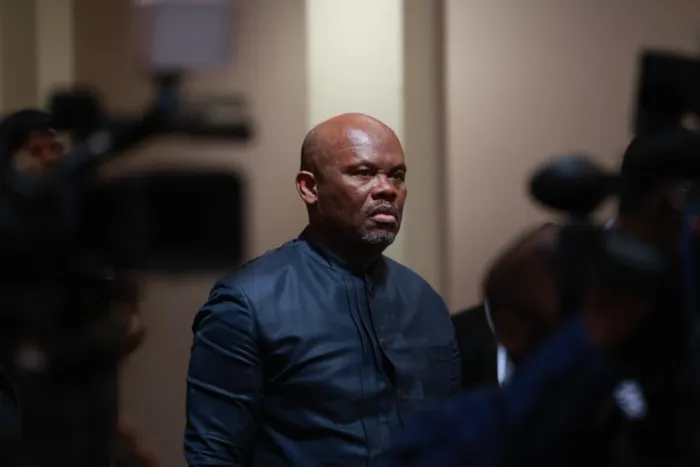
Experts: Arresting Sibiya Would Compromise Police Corruption Probe
Image: Oupa Mokoena / Independent Newspapers
Experts have warned that the potential arrest of Deputy National Police Commissioner General Shadrack Sibiya before he has had the chance to testify at the Madlanga Commission could seriously disrupt ongoing efforts to uncover corruption within the South African Police Service (SAPS).
The warnings come in the wake of a raid on Sibiya’s home by SAPS investigators, conducted as part of a wider probe into allegations of police corruption.
During the operation, authorities confiscated four cellphones and a laptop, intensifying scrutiny of the senior officer.
Political analyst Joe Mhlanga weighed in on the developments, cautioning that an arrest at this stage would hinder both the commission’s work and broader investigations.
“It would limit the process in terms of investigations. He would be attending court cases instead of giving his side of the story about what happened in the police force regarding the allegations against him.”
Mhlanga further highlighted the broader impact on resources and processes.
“Money currently allocated to the Commission would have to be redirected. If he is imprisoned, it might disrupt not only the Madlanga Commission-which the president authorised alongside the parliamentary inquiry - but also the ability of investigators to obtain crucial insights from him.”
He emphasised concerns about the integrity of ongoing investigations.
“Given the allegations Sibiya has made, it’s unclear whether any officers under his command would be willing or able to pursue investigations against him.
“It is essential that he remains available so investigations can proceed and the truth is uncovered. Arresting him now risks undermining those processes.”
In addition, Mhlanga expressed approval of the stance taken by the National Police spokesperson Athlenda Mathe, who confirmed ongoing investigations but denied knowledge of any planned arrest.
Historian Khaya Ndwandwe said that the police should allow the investigations to conclude before making any arrests.
“Every South African is glued to their screens following this matter closely; it would be unfair even on Sibiya to be arrested before he had his day in the Commission. He has much to answer for, and the Madlanga Commission is the correct platform.”
Speaking to the media outside his home following the raid, General Sibiya portrayed himself as a victim of targeted persecution.
“I feel betrayed by my own police colleagues,” he said. “At least they should think of my children. They took three or four laptops, but there was nothing there. Every day we are under siege. Helicopters fly around constantly.”
Sibiya described the raid as an unjustified “siege” and strongly condemned the manner in which authorities conducted the operation.
“If the police want to arrest me, it must be done fairly and properly—not at 3 am. My life is in danger. Although I was provided with security, this is not done in good faith. They have placed people around here to pass on information.”
Mathe confirmed that the raid formed part of ongoing investigations discussed publicly in the Ad Hoc Committee and at the Madlanga Commission, underscoring SAPS’s commitment to transparency.
Meanwhile, the Organisation Undoing Tax Abuse (OUTA) weighed in on the broader fight against corruption.
CEO Wayne Duvenage called for urgent capacity building within key law enforcement and anti-corruption agencies, including the Special Investigating Unit, National Prosecuting Authority, Hawks, and South African Revenue Service.
Duvenage warned, “Until these networks are dismantled and the rule of law is allowed to flow unhindered, leading to prosecutions, South Africa remains trapped in a cycle of exposure without consequence.”
thabo.makwakwa@inl.co.za
IOL Politics
Related Topics: